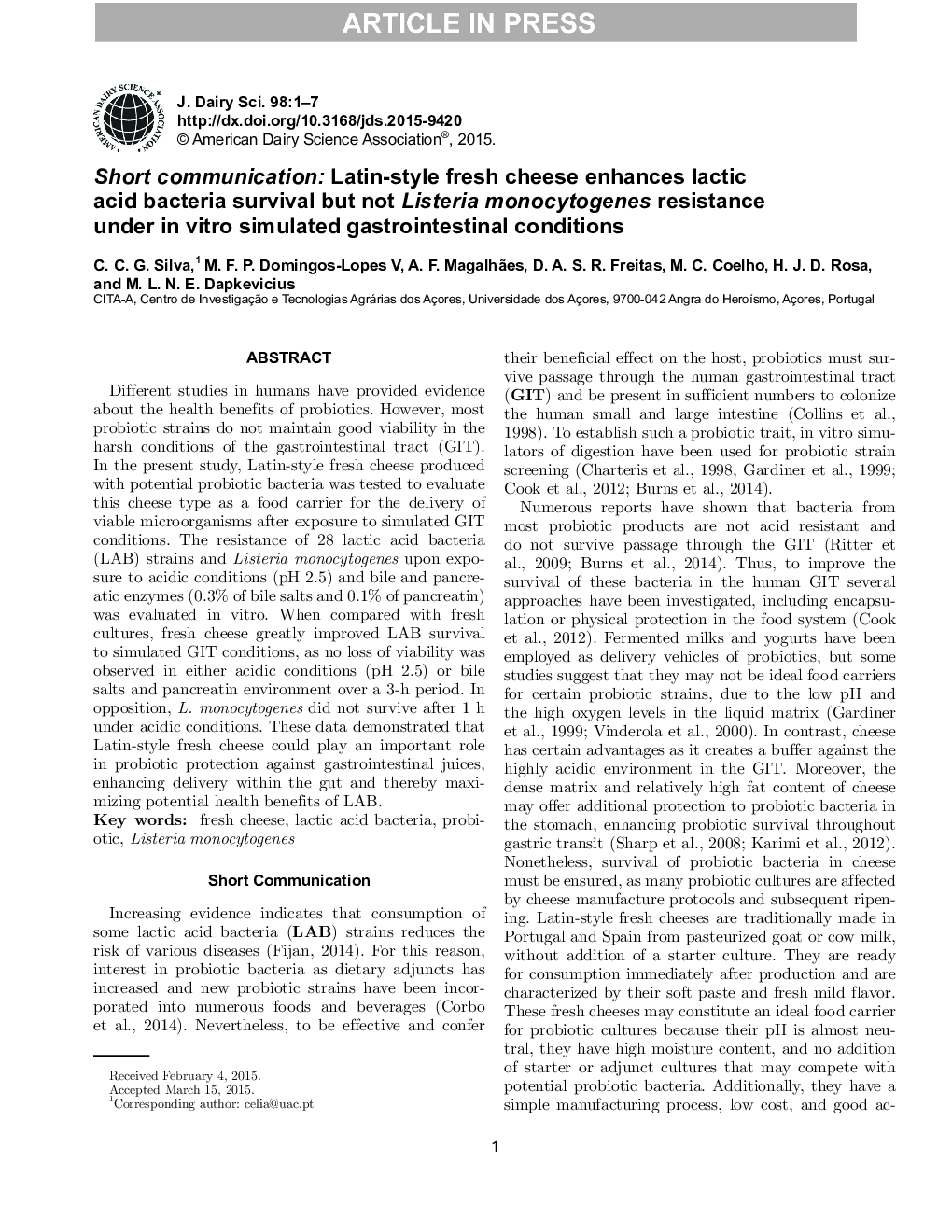| Article ID | Journal | Published Year | Pages | File Type |
|---|---|---|---|---|
| 10975239 | Journal of Dairy Science | 2015 | 7 Pages |
Abstract
Different studies in humans have provided evidence about the health benefits of probiotics. However, most probiotic strains do not maintain good viability in the harsh conditions of the gastrointestinal tract (GIT). In the present study, Latin-style fresh cheese produced with potential probiotic bacteria was tested to evaluate this cheese type as a food carrier for the delivery of viable microorganisms after exposure to simulated GIT conditions. The resistance of 28 lactic acid bacteria (LAB) strains and Listeria monocytogenes upon exposure to acidic conditions (pH 2.5) and bile and pancreatic enzymes (0.3% of bile salts and 0.1% of pancreatin) was evaluated in vitro. When compared with fresh cultures, fresh cheese greatly improved LAB survival to simulated GIT conditions, as no loss of viability was observed in either acidic conditions (pH 2.5) or bile salts and pancreatin environment over a 3-h period. In opposition, L. monocytogenes did not survive after 1Â h under acidic conditions. These data demonstrated that Latin-style fresh cheese could play an important role in probiotic protection against gastrointestinal juices, enhancing delivery within the gut and thereby maximizing potential health benefits of LAB.
Related Topics
Life Sciences
Agricultural and Biological Sciences
Animal Science and Zoology
Authors
C.C.G. Silva, M.F.P. Domingos-Lopes, V.A.F. Magalhães, D.A.S.R. Freitas, M.C. Coelho, H.J.D. Rosa, M.L.N.E. Dapkevicius,
